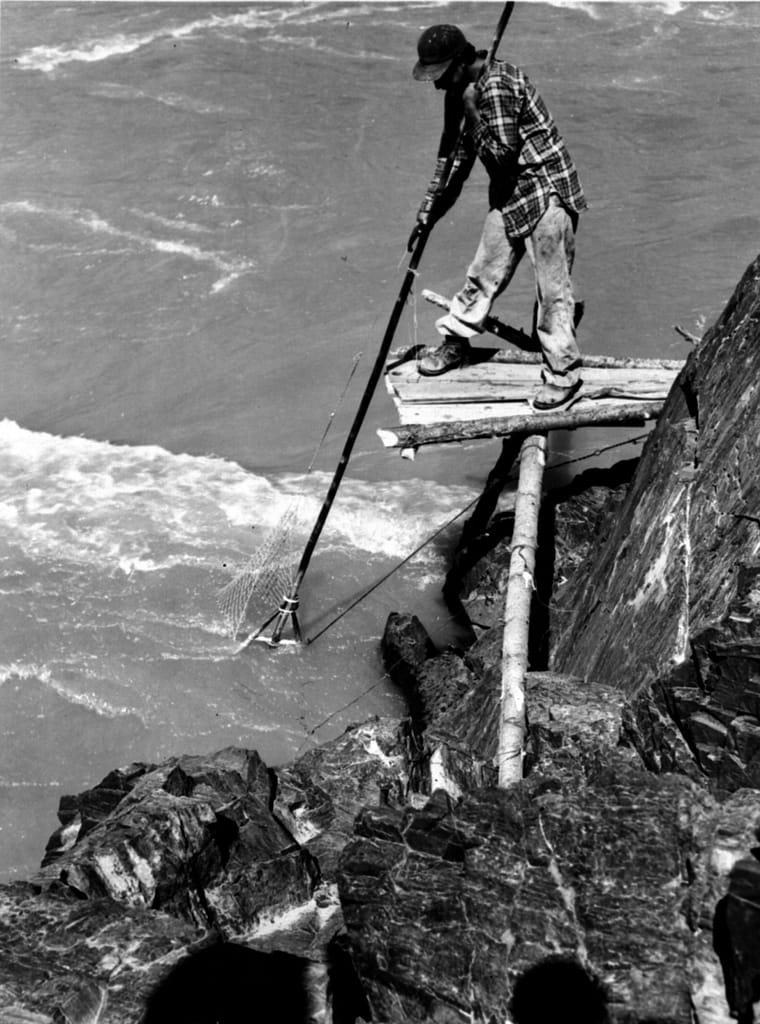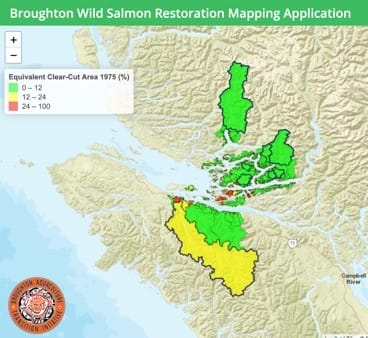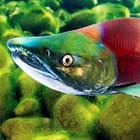

 How are First Nations standing up to eliminate the salmon farm threat?
How are First Nations standing up to eliminate the salmon farm threat?
Salmon is central to Indigenous cultures and economies in much of British Columbia, and Atlantic salmon farms are located in the traditional territories of many First Nations. Some band councils have consented to the farms and some have not. In the waters near the farms, all have seen dramatic declines in the abundance of salmon and other marine resources such as clams which they depend on. As returning salmon numbers dropped perilously low with extinction becoming more of a possibility, coastal First Nations in B.C. became increasingly vocal in their opposition to salmon farms and in their demands for a seat at the negotiation table with governments. Indeed, without First Nations leadership, the tide would not be turning against salmon farms along the coast of British Columbia.
Their opposition was, and continues to be, supported and magnified by many non-Indigenous people and organizations. In 2010, the 360 km Get Out Migration down Vancouver Island from Port McNeill to Victoria was widely supported along the way and culminated in a rally of some 5,000 Indigenous and non-indigenous people on the lawn of the B.C. Legislature. In 2016 and 2017, farms in the Discovery Islands and Broughton Archipelago were visited by the Sea Shepherd ship Martin Sheen. At times, it was accompanied by First Nations hereditary chiefs who performed cleansing ceremonies, delivered eviction notices, and filmed diseased and deformed fish.
Years of persistent, respectful and unfruitful opposition to the salmon farms came to a head in 2017. In August of that year, Hereditary Chief Ernest Alfred and Tlalita‘las (Karissa) Glendale of the Namgis First Nation of Alert Bay led the occupation of two farms in the Broughton Archipelago and sparked a resurgence of First Nations opposition to the farms that had never received their consent. They stayed for 280 days as the clock ticked towards the June 2018 deadline for licence renewals by the B.C. government. See our Governments page.
A landmark agreement in June 2018 with the Government of B.C. (see our Governments page) gave First Nations the authority to deny salmon farm leases in the Broughton Archipelago. It also established the Broughton Aquaculture Transition Initiative (BATI) program, led by First Nations, to monitor the impacts of the farms on wild salmon and the health of salmon stocks in eight priority watersheds.
In June 2020, the First Nations Leadership Council called for an end to all open-net pen salmon farming in British Columbia. “No more excuses, distractions, or delays – open-net fish farms are decimating wild salmon populations and First Nations’ ways of life are on the line,” stated Chief Dalton Silver, Sumas First Nation and Union of B.C. Indian Chiefs Fisheries Representative.
In September 2020, 101 B.C. First Nations plus wilderness tourism operators and commercial and sport fishing groups demanded that the Government of Canada take action on the collapse of Fraser River salmon stocks by ordering the removal of floating open-net salmon farms in the Discovery Islands and, indeed, along all of the B.C. coast.
First Nations’ fight against open net pen salmon farms is only one aspect of their long struggle to have their Aboriginal rights and title recognized and respected in B.C. and Canada. Legal expert Jack Woodward gives an introduction to that struggle in the context of the landmark 2014 Tŝilhqotʼin Nation Supreme Court decision and the advent of independent power production in British Columbia.


